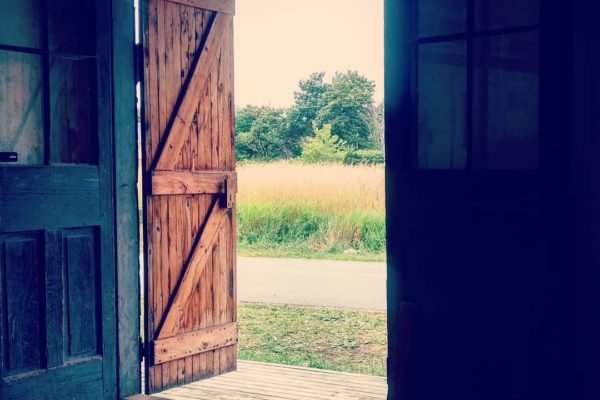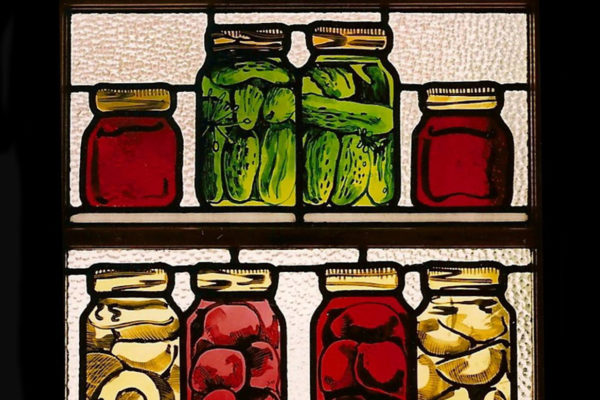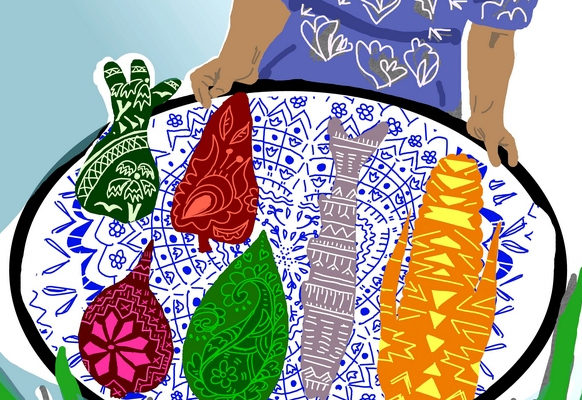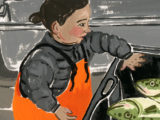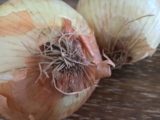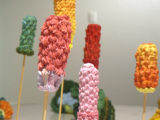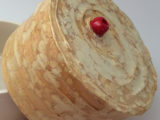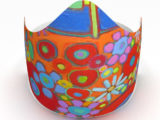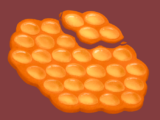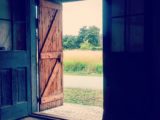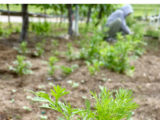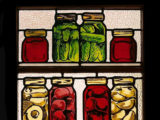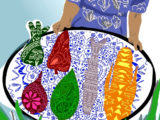Issue 19 (2020): Food Work
Essential Workers or Essential Work?
in Editorial
Have we really thought about these workers—the woman at the cash, the dishwasher in the restaurant, the trucker on the highway—or have we only thought about the work that needs doing? Do we value essential workers or just their essential work?
It’s Not My Childhood
in Poetry
But I’ll remember it for you. / You gorged yourself on wild pears / Scarred apples picked from gnarled trees / Snakes lurked underfoot among the tall grasses / But you learned to eat your fear with screams, / Transformed it into ecstasy. / You had no use for quiet. /
Five Pounds of Yellow Onions
in Creative Nonfiction
After Roger died, I discovered I couldn’t cook. I did not know how to make soup, stew, paella, rice pilaf, stir fry, potato omelettes. He cooked these meals. When we knew he was dying, he asked me to promise I would prepare, cook, and eat "proper" meals every evening.
Food Fights
in Fiction
Bring Your Kid to Work Day and my Eighth Grader wanted to come to the cake factory with me. You can't have kids on the plant floor when we are in operation, and to tell you the truth I didn't want her to see me with a hairnet and scrubs on, sorting cupcakes into colours.
The Lucky One
in Creative Nonfiction
It’s your turn to prepare the sweet bread for the Christmas family gathering this year. Your mother used to take care of it, and her mother before her. But with those matriarchs gone the responsibility now falls to you, the eldest woman in the family.
Breaditations
in Poetry
I. MEASURE; MIX two cups of lukewarm water / the temperature of our beating hearts / two and a half teaspoons yeast / dropped without warning / one teaspoon of sea salt / since we could not cry for fear / a quarter cup of oil / we learned to count it out
butcher’s hands
in Poetry
take three pounds of flesh and bone / cleave the block in two / trim the fat but leave the muscle / these hands must grip knives / use a boning blade / to fillet grooves between fingers / slice off the thumb tip / a destined loss / etch a jagged scar across ...
Bubble Waffle on Xie Road
in Poetry
thirteen years ago she stood beside him / in a ponytail and simple T-shirt / eyes steady on the nimble hands / that rested on the handle of the hot iron / heat against heat a quick catch / his wrist jerks and the platter flips / onto its stomach flames slowly roasting
This Day
in Fiction
I used to try and explain that farmers accept death as a part of life. That we believe the animals have a purpose and are there to be used. That there’s tremendous satisfaction in knowing you’ve given your animals the best care possible and in knowing they are going to feed others.
A Nice Pair of Stilettos
in Fiction
After we closed up that night, Deb and I were cashing out with rum and cokes, a plate of poutine set between us, stilettos on top of the bar, shining under the lights. "You're young," she said. I shrugged, letting shoulders do the talking. "You could do better."
The Pickers
in Poetry
farmer blood, peasant blood, / managing-to-hold-on-by-a-thread blood / seeps from veins into deepening soil, / willing things to grow in desolate places. / we’ve always picked things, / soft things and hardened things / bajra, jowar, rice, sugar cane, and cotton ....
Canner
in Creative Nonfiction
During the Second World War everyone had a garden, a Victory Garden they were called. The whole family participated. It was fun and a way to feed ourselves and store for the future, whatever that uncertain future may be. No matter how small the yard there was always room....
A Feast to Die For
in Fiction
Amarjit never ate with him. He complained she was too noisy. He complained she was eating too much. He complained she was eating too little. She just sat across from him and watched like a sentinel, noting each approval and recoiling at any dissatisfaction.
Lobster Season Closure
in Poetry
I am a commodity, export, / no longer poor-man’s food / prepared by wives / in drafty kitchens. / The engines are off, / hands still. / There will be time again / to be pulled upward, / lifted from saltwater. / For now, the pull is within / and away from myself.

